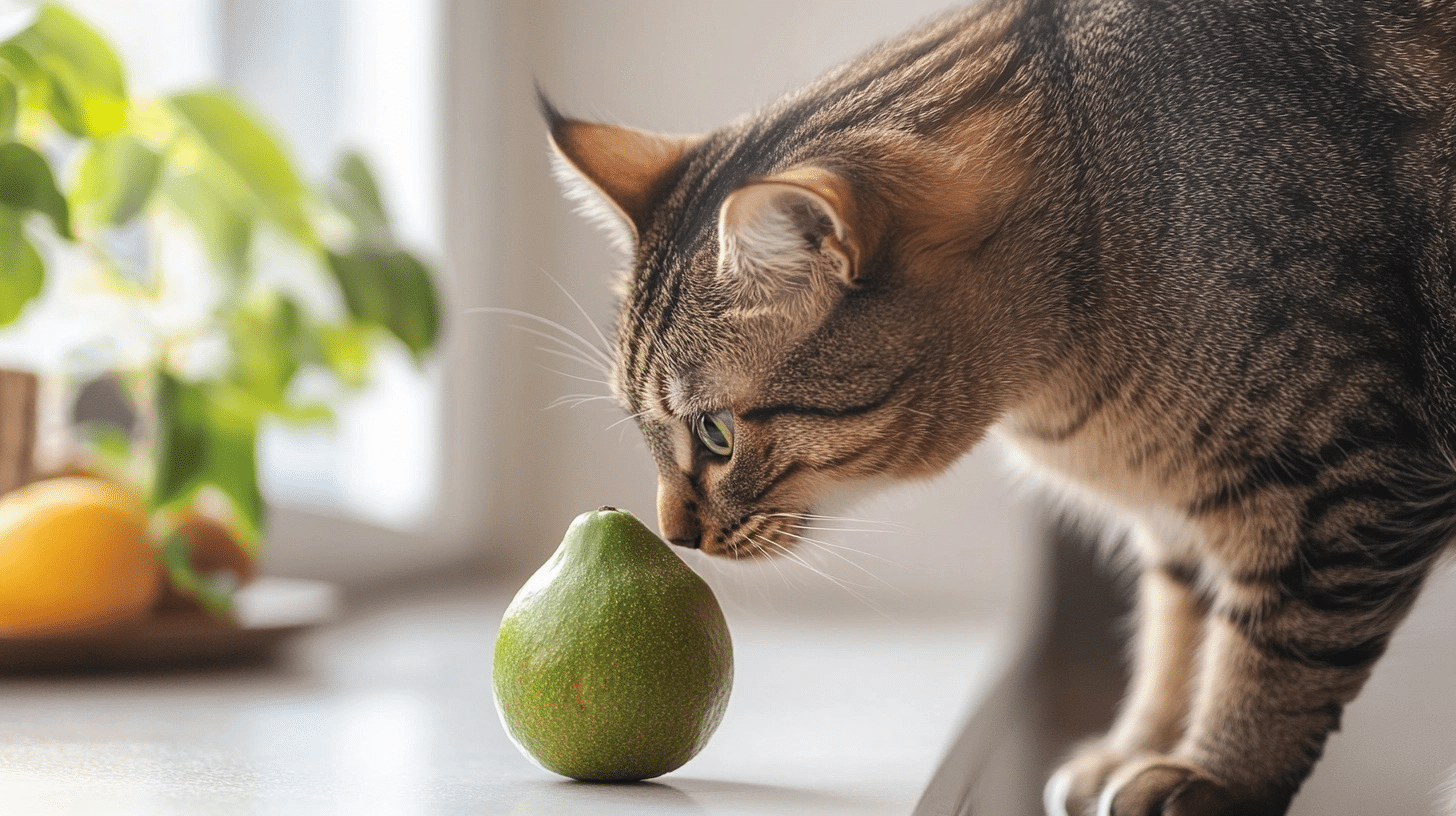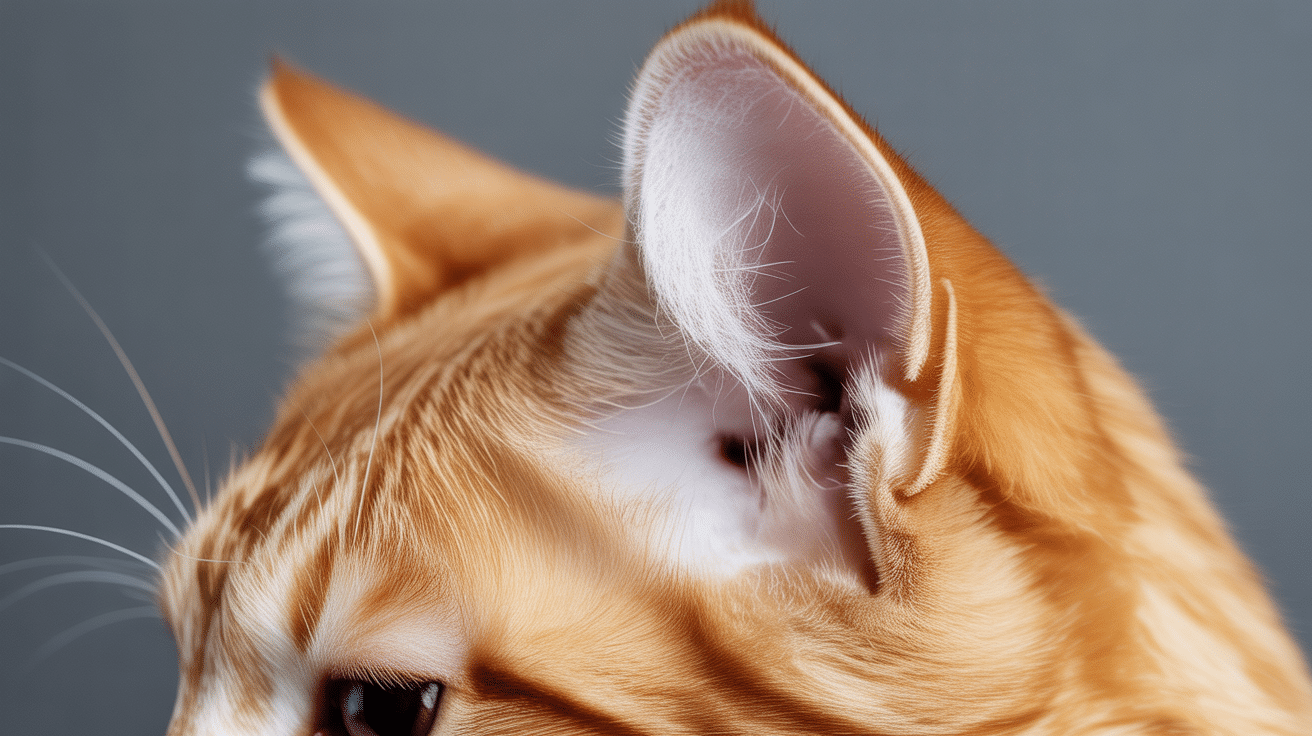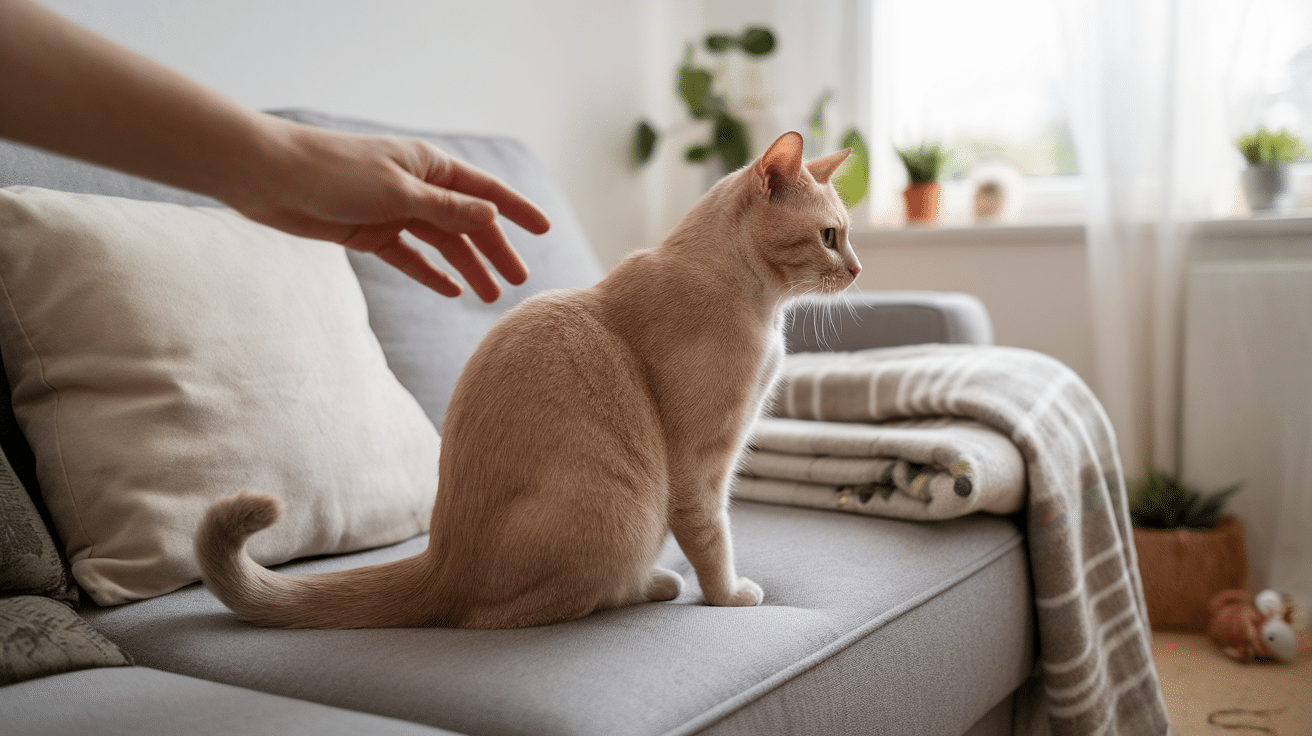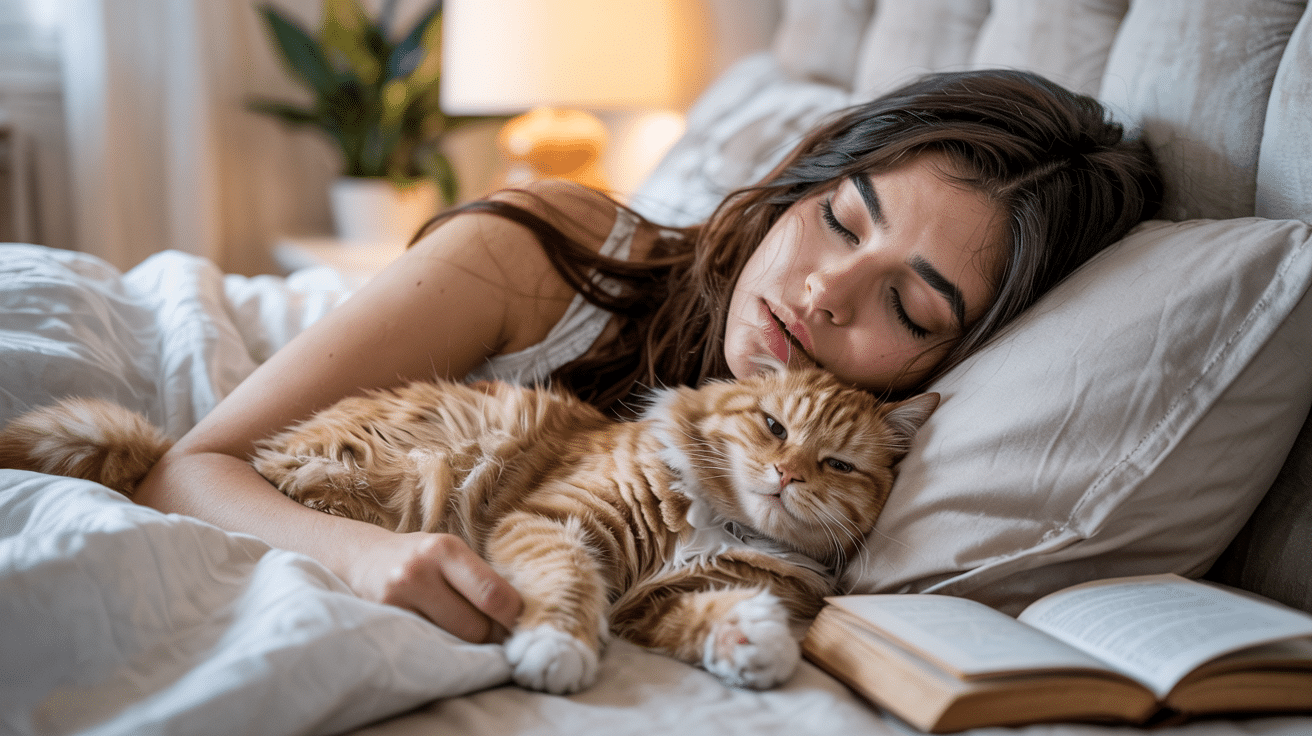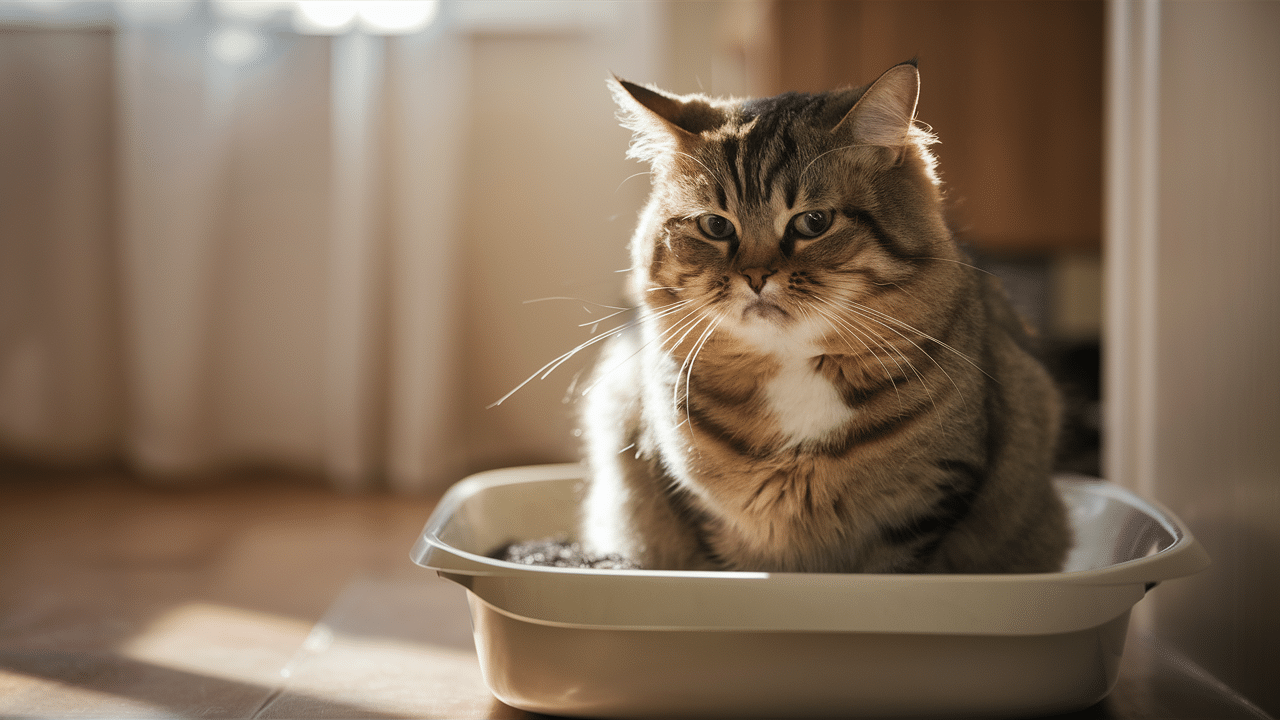Your cat just licked a piece of guava. Should you be worried?
Good news: you don’t need to rush to the vet. Guava is safe for cats in small amounts, though it’s not something they need in their diet.
Many pet owners wonder about sharing human foods with their furry friends, especially fruits that we consider healthy.
I’ll share if guava offers any benefits for cats, what risks to watch for, which parts of the fruit to avoid, and what vets say about cats eating guava.
By the end, you’ll know exactly how to handle those curious licks and nibbles when your cat shows interest in your tropical fruit snack. Ready to become a more informed pet parent?
Is Guava Safe for Cats to Eat?
Cats may show interest in fruits you’re eating, including sweet treats like guava. As pet owners, it’s normal to wonder if sharing this fruit with your feline friend is okay or if it might harm them.
The Short Answer
Yes, guava is non-toxic, but it’s not essential to a cat’s diet. Multiple sources confirm that cats can safely consume small amounts of guava without harmful effects.
The fruit itself contains no poisonous compounds that would make cats sick. However, just because cats can eat guava doesn’t mean they should have it regularly or in large portions.
What Vets Say About Fruit in Cat Diets
Cats are obligate carnivores. Fruits like guava should be occasional treats. Veterinarians point out that a cat’s digestive system is mainly built to process meat, not plant matter.
While fruits offer some nutrients, they’re not part of what cats would naturally eat in the wild.
Most experts suggest keeping any fruit servings minimal and watching for signs that your cat’s stomach might be upset by new foods.
What Parts of Guava Can Cats Eat?
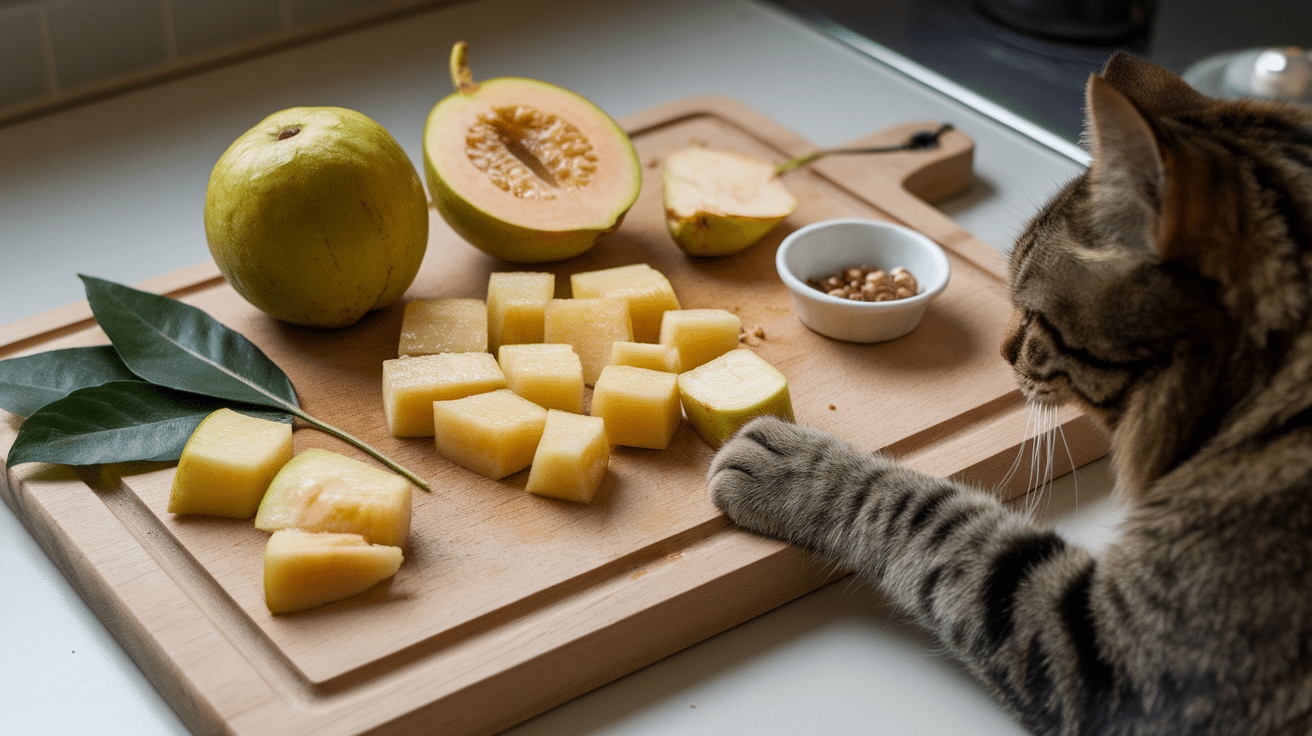
When sharing guava with your cat, knowing which parts are safe matters. Cats’ bodies handle different food components in unique ways, and some parts of this fruit are better than others for your furry friend.
1. Flesh (Fruit)
Safe in small bites; high in sugar and fiber. The soft inside part of the guava is the safest option for cats. However, even this should be given in tiny amounts, think the size of a pea or smaller.
The natural sugars in guava can be too much for cats’ systems if they eat too much at once. The fiber content, while good for humans, might lead to loose stools in cats if they eat more than a small amount.
2. Seeds
Should be avoided; they are a choking hazard and harder to digest. The small seeds found throughout the guava pose risks to cats. They could get stuck in a cat’s throat or cause issues moving through their digestive tract.
Several pet safety sources note that it’s best to remove all seeds before giving guava to your pet.
3. Skin
Guavas can cause digestive upset due to their toughness and possible pesticide residue. The outer layer of the guava is hard for cats to chew and digest properly.
Store-bought guavas might also have chemicals on the skin that could make cats sick. Always peel a guava before sharing any with your cat to avoid these issues.
4. Leaves
Guava leaves are not toxic, but they are not recommended because they may cause stomach upset. While they won’t poison your cat, they aren’t good cat food.
Sources state that leaves might upset your cat’s stomach if eaten in larger amounts. If you have a guava plant at home, it’s wise to keep your cat from nibbling on the leaves.
5. Juice and Paste
Avoid due to added sugars and concentration. Processed guava products like juice and paste often contain extra sugar and other items that aren’t good for cats.
One source mentions that guava juice has too much sugar for cats and isn’t a good choice for a regular treat. These concentrated forms can also cause digestive problems more easily than small bits of fresh fruit.
How to Feed Guava to Your Cat Safely
If you decide to share guava with your cat, follow these basic steps for safety:
- Wash thoroughly: Remove seeds and skin. Clean the fruit well and take away all seeds to prevent choking. The skin should also be removed as it’s hard to digest and may have pesticides. One source warns that “cats should not consume the seeds or the skin of the guava.”
- Offer only a small bite (1–2 grams max): Keep portions tiny—about the size of a small pea. This lets your cat try something new without getting too much sugar and fiber. Sources stress that guava should be given “in moderation” and “kept to a minimum.”
- Watch for any reactions: After your cat tries guava, watch for stomach upset or behavior changes. As one article advises, “monitor your cat for any signs of discomfort.”
- Do not feed daily: Guava should be an occasional treat only, not a regular food. Experts note that while guava “isn’t toxic to cats,” it’s not meant to be a standard food item. Focus on giving your cat proper meat-based foods instead.
Are There Any Benefits to Guava for Cats?
While guava isn’t made for cats, you might wonder if this fruit offers anything good for your pet.
Guava contains vitamin C, fiber, and antioxidants that fight cell damage – one article mentions it as “a good source of antioxidants.”
Fresh guava’s water content may promote hydration, potentially adding moisture to your cat’s diet. However, unlike humans, cats naturally produce their own vitamin C, and their bodies are designed for meat, not plants.
Though guava isn’t harmful in small amounts, it doesn’t provide cats with anything they truly need.
Pet health sources agree that guava’s minimal benefits don’t compare to what cats get from proper meat-based foods, which are much better suited to their nutritional needs.
Potential Risks of Feeding Guava to Cats
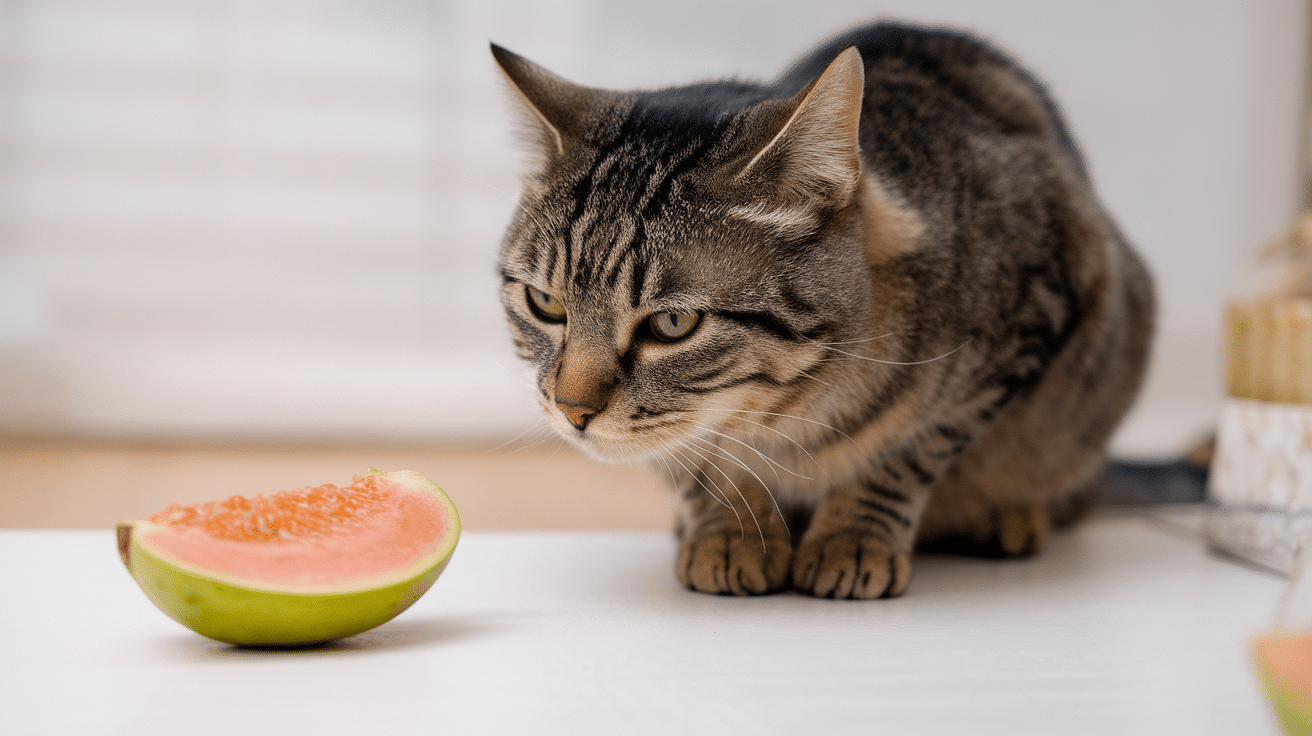
Sharing guava with your cat isn’t free from downsides. Being aware of possible problems helps you make smart choices about what your cat eats.
Digestive Issues
Too much fiber or sugar may lead to vomiting or diarrhea. Cats’ stomachs aren’t built to handle fruits like ours are. The fiber in guava, while healthy for humans, can upset a cat’s system.
One source points out that guava “may cause digestive issues” due to its fiber and sugar content.
Even small amounts might cause loose stools or stomach pain in some cats, especially those with sensitive digestion.
Allergic Reactions or Intolerance
Signs to watch for: vomiting, lack of appetite, lethargy. Just like people, cats can have bad reactions to new foods. If your cat seems tired, won’t eat, or throws up after trying guava, they might not handle this fruit well.
Pet health articles suggest watching your cat closely after giving any new food, including guava. If you notice any odd behavior or illness, it’s best to stop giving guava and talk to your vet.
Behavioral Problems
If fed sweet treats often, cats may beg for fruit. Giving cats sweet foods like guava might lead to unwanted habits. Cats can develop a taste for human foods and start asking for them more.
This might make them less interested in their regular cat food, which has the nutrients they truly need. Creating a cycle of begging behavior can be hard to break once it starts.
Safer Fruit Alternatives for Cats
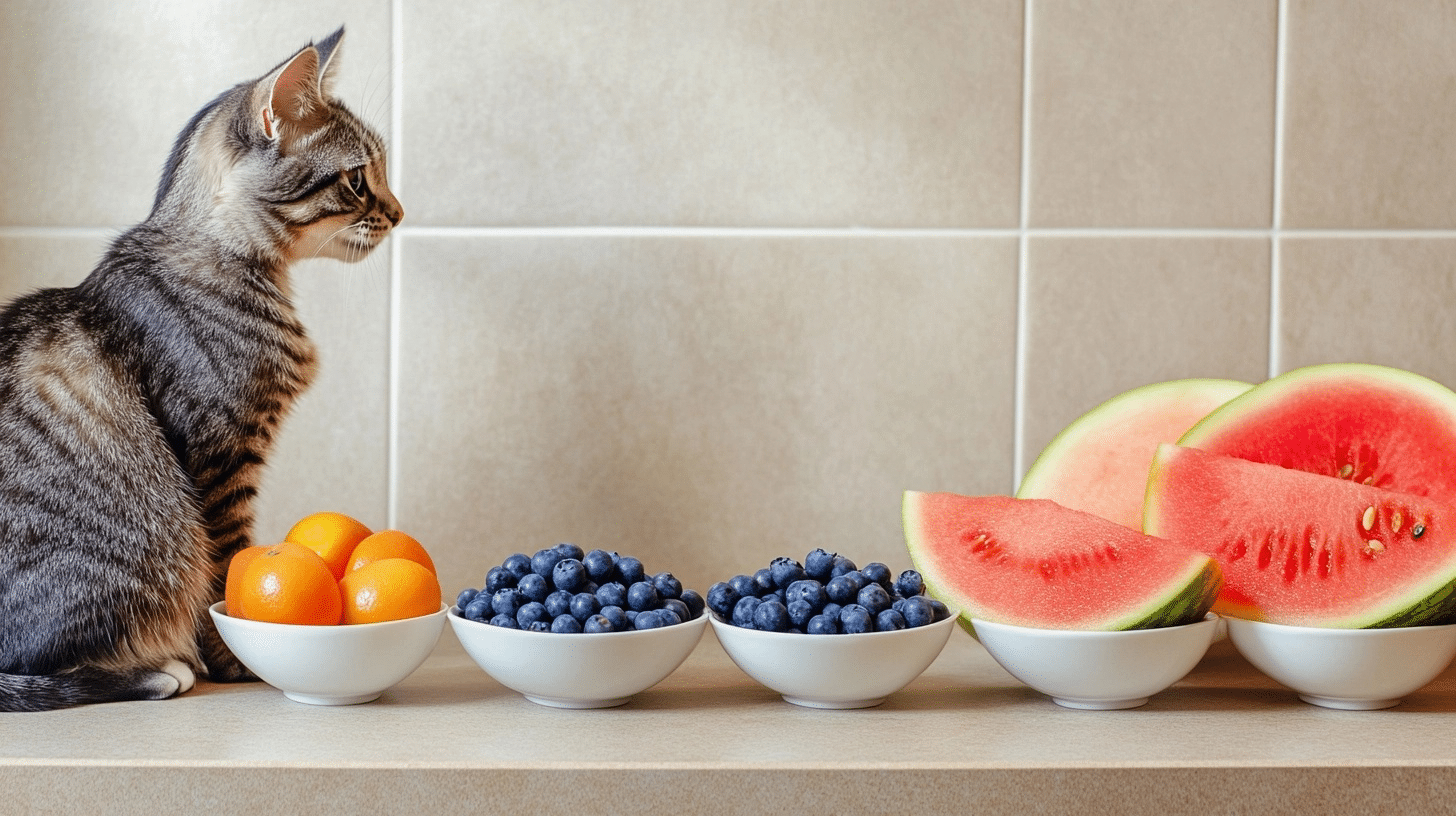
If you want to share fruits with your cat, these options may work better than guava:
- Blueberries (antioxidants, low sugar) are small and soft, with less sugar than many fruits, making them easier on your cat’s system. Just wash them well before sharing. Their small size means less prep work, too.
- Cantaloupe (hydrating, easy to digest) is a treat many cats enjoy, thanks to its smell and taste. Its high water content helps with hydration, and the soft texture is easy to eat. Remove all rind and seeds, offering only small pieces of flesh.
- Watermelon (seedless, in small pieces), with lots of water and soft texture, can be cut into tiny, pea-sized bites. The cool, moist nature might be welcome on hot days.
- Apple (no seeds or core), small bits of peeled apple can be safe, but always remove the core, seeds, and peel completely. Apple seeds contain compounds that aren’t good for cats, and the peel is hard to digest.
Remember that even these safer fruits should make up only a tiny part of your cat’s diet. Most cats do best with proper meat-based cat food.
Fruits that are Toxic to Cats
Unlike guava, some fruits pose real dangers to cats and should never be shared. Grapes and raisins can cause serious kidney damage in cats, even in small amounts, requiring immediate vet attention if consumed.
Citrus fruits like lemons and oranges contain oils and compounds that can upset your cat’s stomach and irritate their digestive system.
Cherries are risky because their pits, stems, and leaves contain substances that can release cyanide when eaten, plus the small size makes them a choking hazard.
Certain varieties of avocado contain persin, which can be toxic to many animals. The large pit presents a serious choking risk. If you suspect your cat has eaten any of these harmful fruits, contact your vet immediately for guidance.
Conclusion
Guava isn’t harmful to cats in tiny amounts, but it’s not something they need in their diet.
Cats are meat-eaters by nature, and while a small taste of guava probably won’t hurt, it doesn’t give them any nutrition they can’t get from their regular cat food.
Before adding any human food to your cat’s meals, it’s always best to check with your vet first. They know your pet’s health needs and can give you the best advice about what treats are safe.
Have you tried giving guava to your cat? Share your experience in the comments or tag us in your pet snack photos! If you found this helpful, check out my other posts about cat nutrition and safety.
